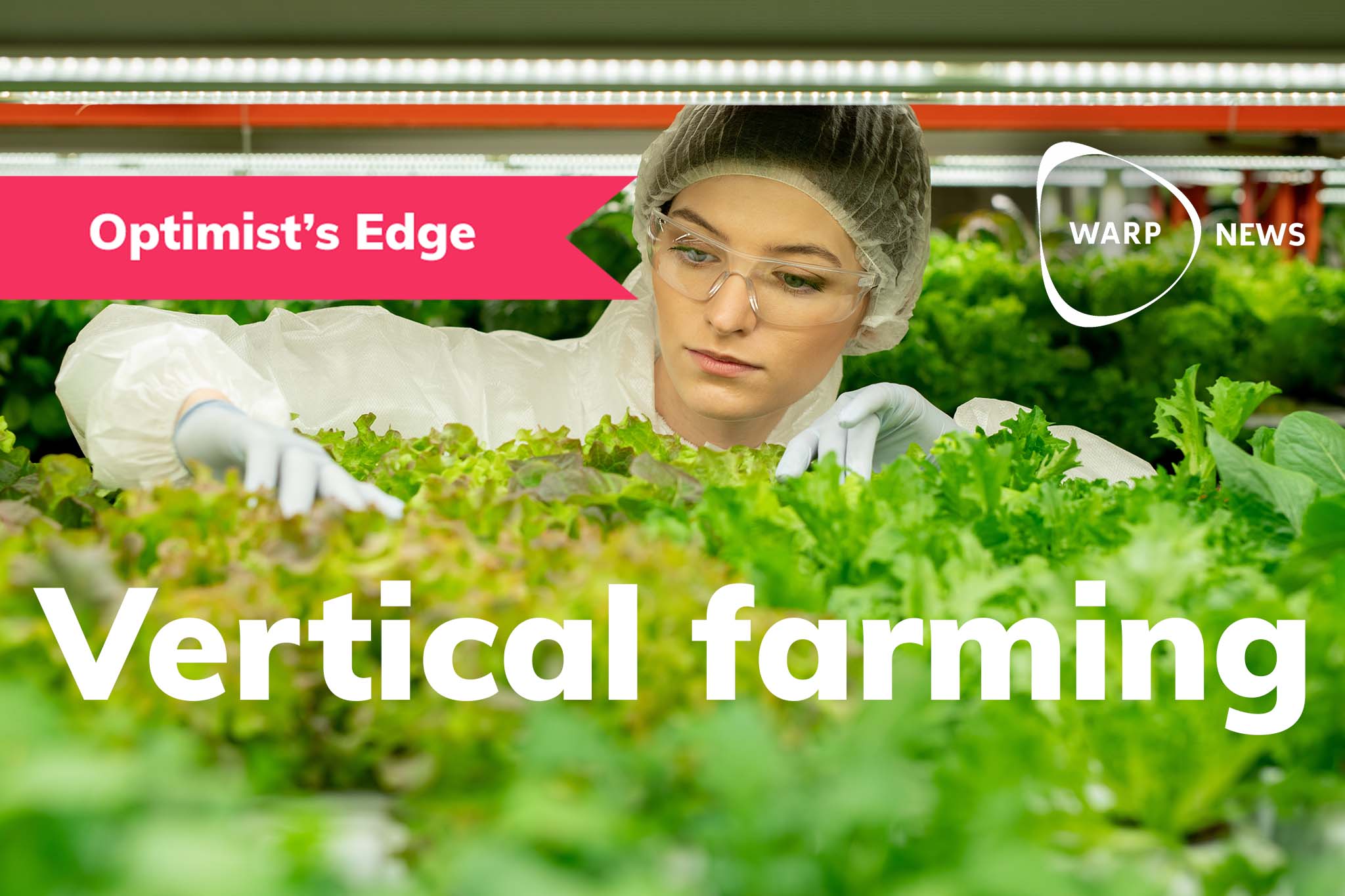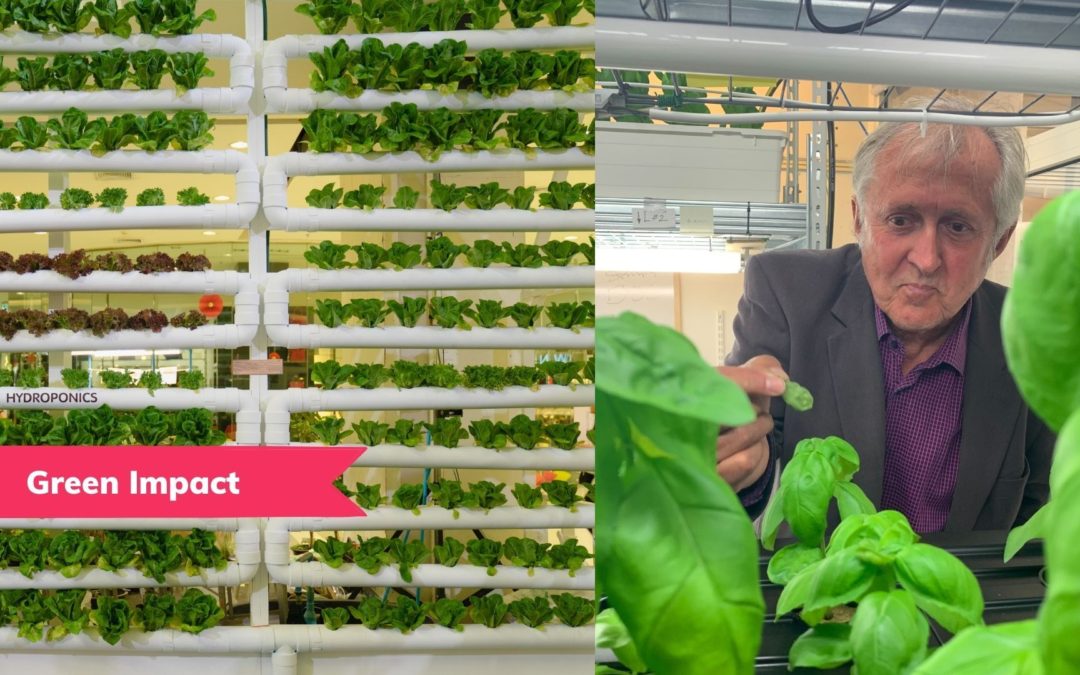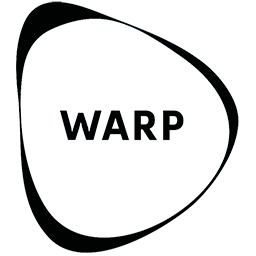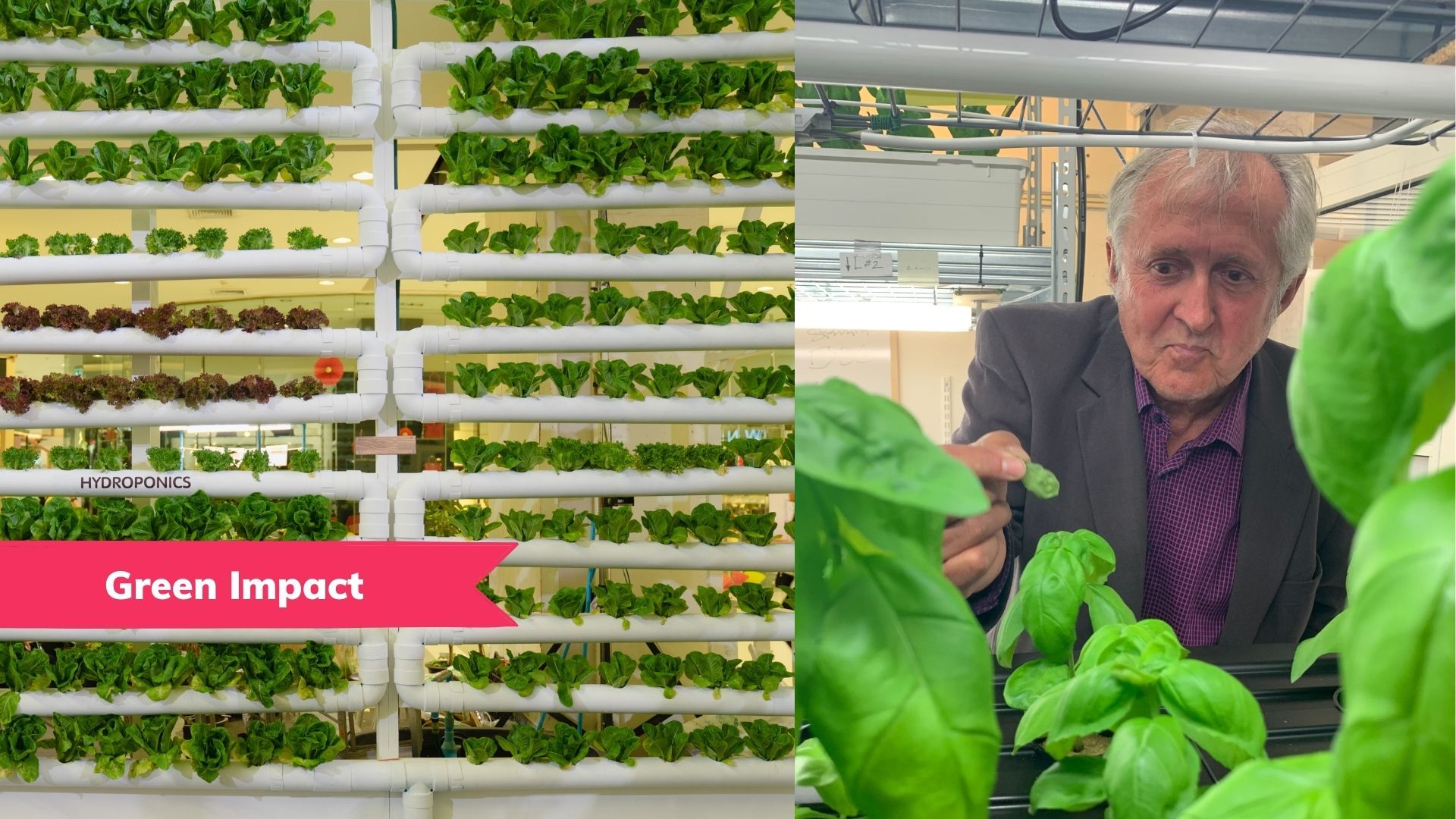
Vertical farming is really smart.
You can grow vegetables year-round, even in places with long, dark winters. Grow them anywhere with minimal transport, even directly in grocery stores and there is no need for pesticides.
"Growing in this way, in a controlled indoor environment, is definitely the future. In ten years, half of the crops we consume will come from indoor cultivation in different varieties,” founder and CEO of Ecobloom, Hamza Qadoumi, says.
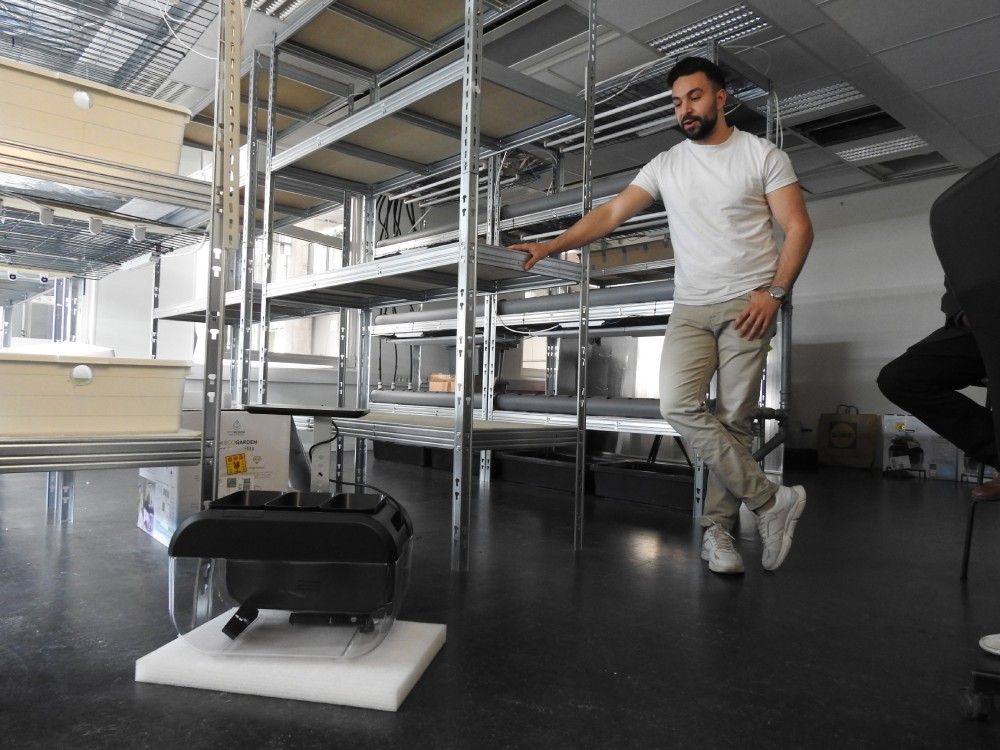
Ecobloom is creating software to grow vegetables and other produce as efficiently as possible. We have written about them and Hamza Qadoumi before. Now it was time for the Warp Premium Supporters to check out this cool company and taste the future – literally.
Growing basil on the seventh floor
Ecobloom is constantly experimenting with new batches of basil and other vegetables. They change the lighting, temperature, water, and many other factors and survey the results 24/7. Out of the results, they create digital recipes for growing different kinds of produce.
Growers can optimize production and reduce waste throughout the chain using this technology. Diseased plants can be removed early before they have time to infect neighboring plants, and this can be done without pesticides.
So Ecobloom isn’t farmers themselves, but that doesn’t mean they don’t grow stuff. In a room, at an office on the seventh floor in the middle of Stockholm, you find a small vertical farm. Hamza Qadoumi showed us different ways of growing basil and how they monitor the process. Some of us even tasted the basil (it was really good!)
Less waste
One of our Warp Volunteers, Max Svjatoha, works there.
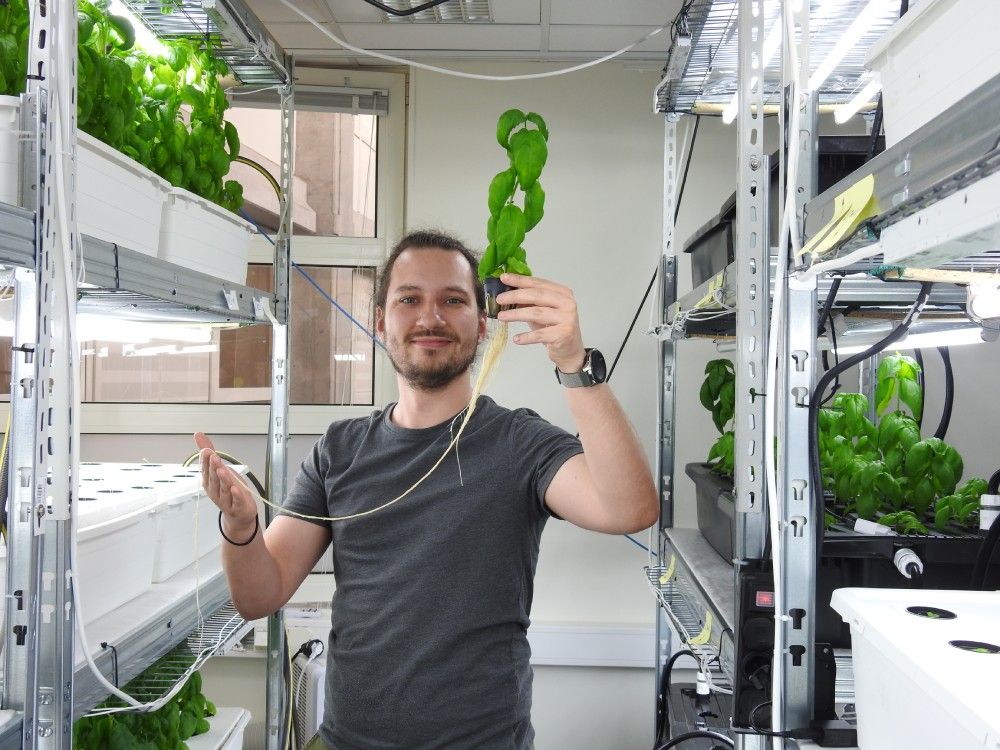
What do you do at Ecobloom?
“I work mainly with our hardware, 'nodes' as we call them. I make sure that the nodes can deliver the data we collect to the cloud and in that way have the main responsibility for our data collection system.”
How does vertical farming contribute to a more positive future?
“I believe that indoor cultivation contributes to higher food safety, less waste and better quality of the food you eat. There is an enormous potential for boosting how much harvest you can get per square meter without depleting the soil.”
Plant psychologist?
Marc Hagberg is a psychologist and one of the Premium Supporters who visited Ecobloom, and was quick to test the basil.
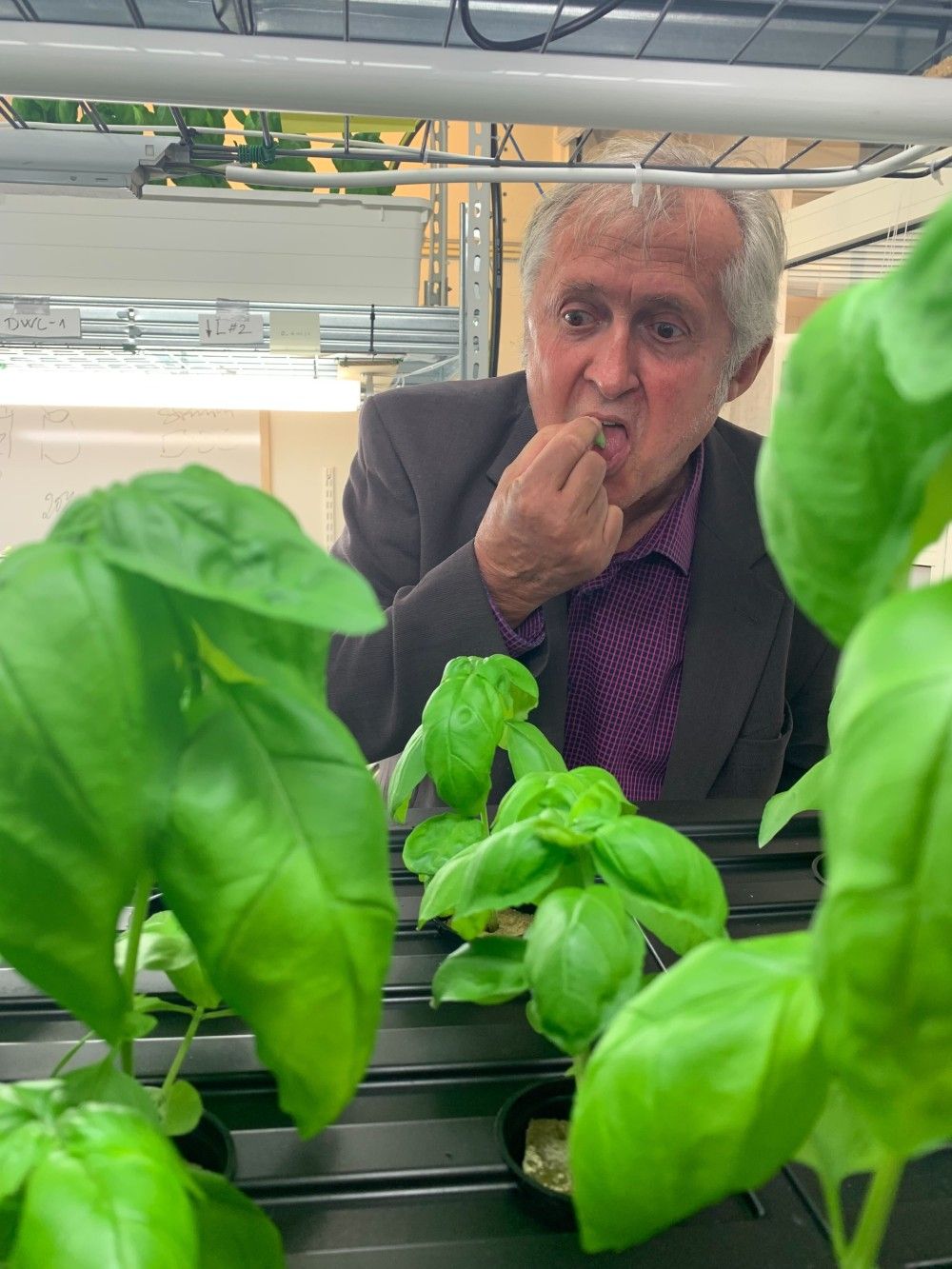
How did the basil taste?
“It was good and tasted a little different depending on the cultivation method I think.”
“We are into the emotional life of plants and can collect data about how they feel in different environments, together with each other, to optimize the process and taste. There are obvious connections to the human race. So maybe I can be the first plant psychologist.”
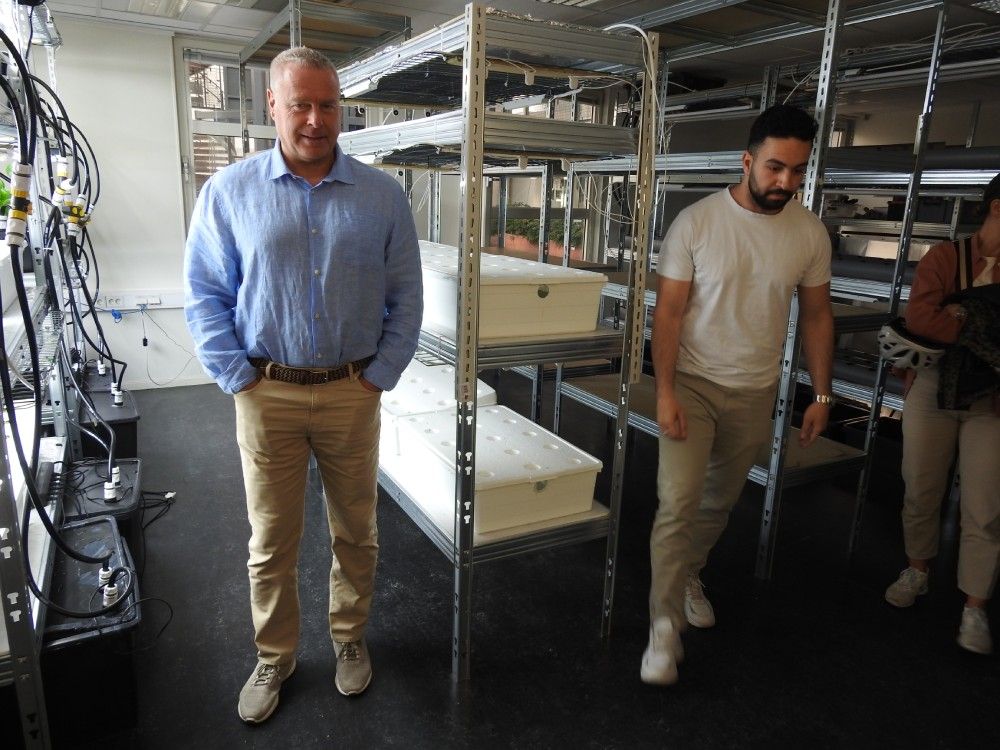
Help Ecobloom succeed
If you want to help Ecobloom help succeed the best thing you can do is to spread the word and create awareness about them, says Hamza Qadoumi. You can share this article and the interview with Hamza. If you are an investor, Ecobloom is right now raising a seed round. (But they want money, not actual seeds.)
“We are always looking for people you can exchange thoughts and ideas with and I myself would have been very interested in getting in touch with someone who has worked with IoT applications before and has experience of relaxing very large amounts of devices at the same time”, says Max Svjatoha.
If you want to be invited to future visits and visit the future, become a Warp Premium Supporter.
